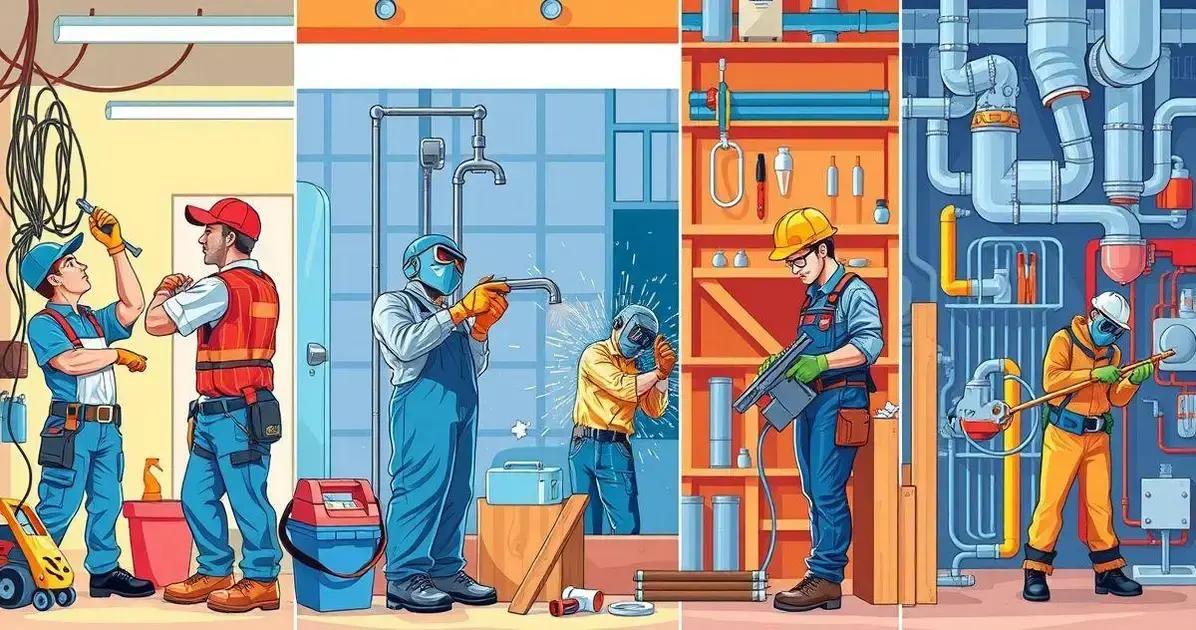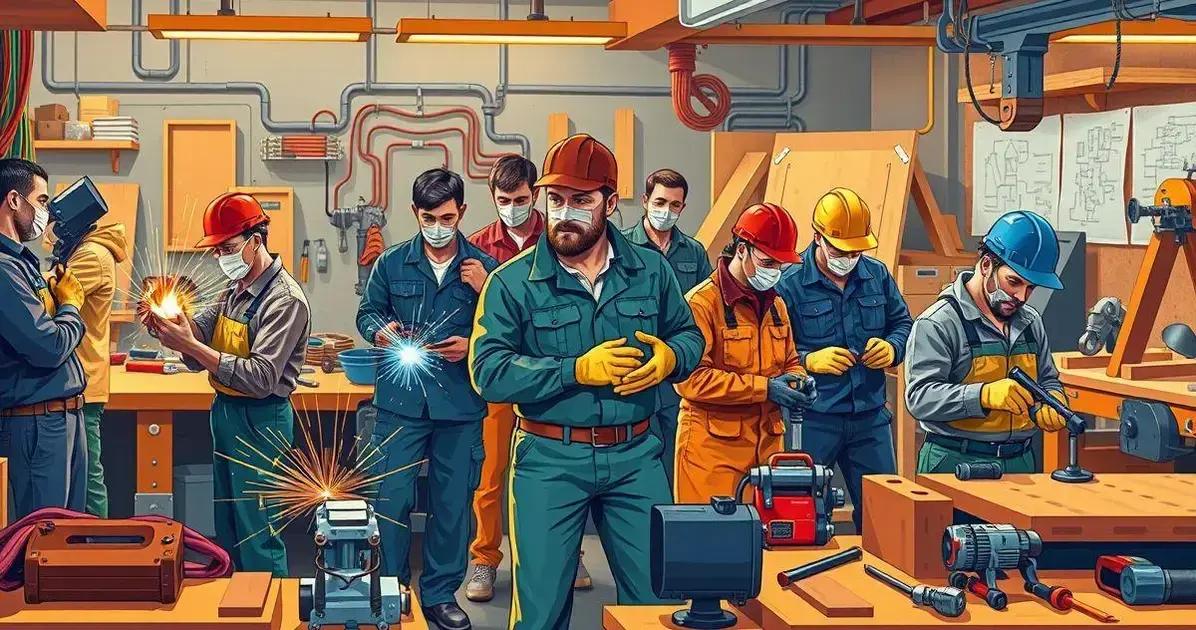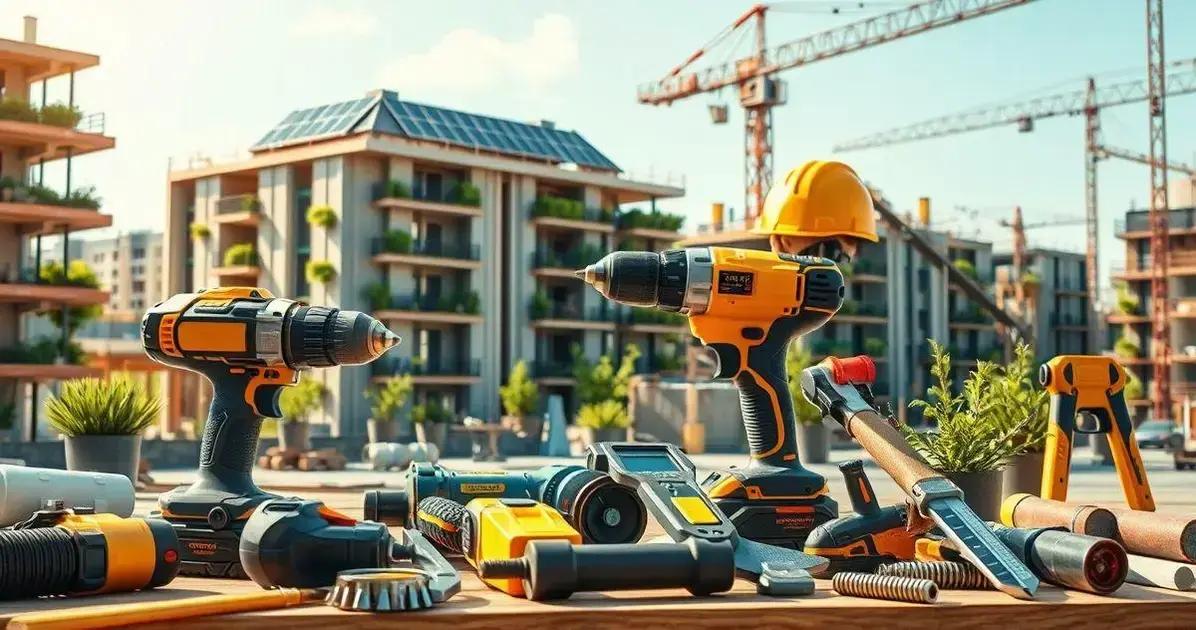Skilled Trades Jobs: Unlock Lucrative Career Opportunities in High Demand Fields
Anúncios
Skilled Trades Jobs are becoming increasingly popular as more individuals seek stable and high-paying careers. Discover the diverse opportunities available in this field as we explore various trades, essential skills, and the benefits of choosing this career path. From electricians to welders, skilled trades offer pathways to success without the need for a traditional college degree.
Understanding Skilled Trades Jobs
Skilled trades jobs are careers that require specialized training and expertise. These jobs often involve manual work, making use of hands-on skills. Skilled trades jobs can be found in numerous sectors, including construction, manufacturing, and maintenance, offering a diverse range of opportunities.
What Defines Skilled Trades?
Skilled trades are usually categorized into three main groups: industrial, construction, and service trades. Each category involves distinct skills tailored to meet specific industry demands. For example, construction trades may include carpenters and masons, while service trades encompass jobs like electricians and HVAC technicians.
Training and Education
Most skilled trades jobs do not require a college degree but instead focus on vocational training and apprenticeships. These educational paths provide practical and theoretical knowledge necessary to succeed in the field, often leading to certifications that enhance employability.
Engaging in a skilled trade often involves learning both in the classroom and on the job. Apprenticeships offer hands-on experience under the guidance of seasoned professionals, ensuring comprehensive developmental opportunities for newcomers.
Demand and Opportunities
Due to the essential nature of their work, skilled tradespeople are in high demand. As infrastructure grows and modernizes, the need for skilled laborers increases, providing stability and job security in these fields. This demand is prevalent across the globe, ensuring opportunities in diverse geographical areas.
Top Skilled Trades Jobs You Should Consider

Exploring the field of skilled trades opens up a variety of **high-demand job opportunities**. Some of the top options include electricians, plumbers, and welders. Each offers unique challenges and rewards, attracting individuals with a knack for problem-solving and manual work.
Electricians
Electricians are integral to both residential and commercial settings. By installing and maintaining electrical systems, they ensure the safe flow of electricity. The journey typically begins with an apprenticeship, where aspiring electricians gain hands-on experience.
Plumbers
Plumbers work with water supply and sanitation systems, addressing a range of settings from homes to industrial complexes. Their work ensures clean, safe water and effective waste disposal. Plumbing careers are accessible through apprenticeships and vocational training.
Welders
Welders fuse metal parts, playing a critical role in construction and manufacturing. Their expertise is crucial in various industries, including automotive and aerospace. Welding demands precision and skill, often taught in specialized training programs.
Carpenters
Carpenters craft and construct building frameworks and structures. Working with wood and other materials, they are vital in new constructions and renovations. Carpentry skills are developed through apprenticeships and hands-on practice.
HVAC Technicians
HVAC technicians install and repair heating, ventilation, and air conditioning systems. They maintain indoor climates for comfort and safety. Training programs provide the technical knowledge required for success in this field.
Benefits of Pursuing Skilled Trades Careers
Choosing a career in skilled trades offers numerous advantages, such as job stability and a steady income. These careers are in high demand, making them a reliable option for those seeking long-term employment.
High Earning Potential
Many trades offer excellent earning potential, often surpassing salaries of traditional college graduates. Tradespeople can increase their income through experience and specialization.
Job Security
Skilled trades are essential to society, ensuring solid demand for workers. As infrastructure and housing needs grow, so does the need for skilled craftsmen, guaranteeing consistent work opportunities.
Hands-On Work
For those who enjoy practical work, skilled trades provide a fulfilling career path. Working with tangible results offers satisfaction and a sense of accomplishment.
Less Student Debt
Pursuing skilled trades does not typically require a college degree, significantly reducing or eliminating student debt. Training through vocational programs and apprenticeships is often more affordable.
Opportunities for Advancement
Tradespeople can progress through various roles, from apprentice to master tradesperson, with possibilities to start their own businesses. This growth fosters entrepreneurship and leadership skills.
Essential Skills for Success in Skilled Trades Jobs

In the realm of skilled trades jobs, possessing the right skills is crucial for success. These skills ensure efficiency, safety, and quality in your work.
Technical Skills
Technical skills are fundamental in skilled trades. Mastery of tools, machinery, and job-specific techniques is essential. Whether you’re welding or plumbing, precise technical ability is a must.
Problem-Solving
Skilled tradespeople often encounter unexpected issues. Effective problem-solving skills enable quick and efficient solutions, essential in preventing delays and ensuring quality outcomes.
Attention to Detail
Paying attention to detail can make a significant difference in workmanship. Precision in measurements and careful execution of tasks ensures projects are completed to high standards.
Physical Stamina
Many trades require physical exertion, making stamina important. Long hours and demanding activities necessitate strength and endurance, vital for maintaining productivity.
Communication Skills
Clear communication is key with clients, supervisors, and team members. Strong communication skills guarantee instructions are understood and projects run smoothly.
How to Get Started in Skilled Trades Jobs
Embarking on a career in skilled trades jobs involves several key steps. Whether you’re interested in carpentry, plumbing, or another trade, there’s a clear path to follow.
Research Your Options
Start by researching various trades to find the one that aligns with your interests and skills. Understanding job demands, required skills, and potential earnings helps in making an informed choice.
Pursue Vocational Training
Enroll in a vocational program to gain foundational knowledge. These programs offer insights into trade-specific tools and skills, preparing you for further training.
Enter an Apprenticeship
Apprenticeships provide hands-on training under experienced professionals. These programs typically last a few years, offering practical skills and experience while often earning a wage.
Obtain Certifications
Many trades require certifications or licenses. Passing necessary exams proves your competence and boosts job opportunities. Each trade has specific requirements, so research is essential.
Network in the Industry
Networking with established tradespeople can open doors. Attend industry events and join trade organizations to connect with potential employers and mentors.
Future of Skilled Trades Jobs and Market Demand

The **future of skilled trades jobs** is bright, fueled by technological advancements and a growing need for infrastructure development. As industries evolve, the demand for skilled workers continues to rise, promising robust opportunities.
Technological Integration
Incorporating technology into skilled trades is revolutionizing the field. From advanced machinery to smart home systems, tradespeople are adapting to new tools that enhance precision and efficiency.
Increased Demand
As the global population grows, so does the demand for housing, infrastructure, and maintenance. This surge ensures a steady need for trades workers, making it a secure career choice.
Environmental Focus
Green technology and sustainable building practices are becoming priorities. Skilled tradesmen like electricians and plumbers are at the forefront, implementing eco-friendly solutions in their projects.
Aging Workforce
Many current tradespeople are nearing retirement, creating a gap in the workforce. This presents an opportunity for new entrants to fill these roles and continue the essential work.
Global Opportunities
The skills learned in trades are transferable across borders, offering work opportunities internationally. This global demand ensures that skilled workers can find jobs in various regions.
Conteúdo não disponível
FAQ – Frequently Asked Questions About Skilled Trades Jobs
What are the top skilled trades jobs I should consider?
Consider jobs like electricians, plumbers, welders, carpenters, and HVAC technicians, each offering unique opportunities and benefits.
What are the benefits of pursuing a career in skilled trades?
Benefits include high earning potential, job security, hands-on work, less student debt, and opportunities for advancement.
What essential skills are necessary for success in skilled trades?
Key skills include technical abilities, problem-solving, attention to detail, physical stamina, and communication skills.
How can I get started in a skilled trades job?
Research options, pursue vocational training, enter an apprenticeship, obtain any necessary certifications, and network within the industry.
What does the future of skilled trades jobs look like?
The future is promising with increased demand due to global growth, aging workforce, and advancements in technology and green practices.






